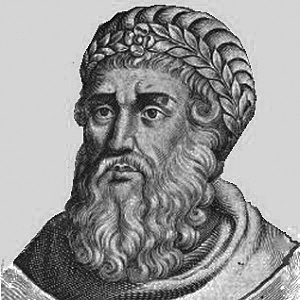 Matthew’s Gospel tells us that when King Herod learned about the birth of the Messiah, he tried to trick the wise men into serving as spies to help him murder Jesus. When that didn’t work, he killed all the male children in Bethlehem under two years old in a murderous effort to exterminate God’s anointed one (Matthew 2:16). Thankfully, Jesus and His family escaped to Egypt, warned in a dream from the Lord. Still, Herod’s infanticide became infamous, known to Christians as the Slaughter of the Innocents. Who was Herod? And why would he commit such an evil act?
Matthew’s Gospel tells us that when King Herod learned about the birth of the Messiah, he tried to trick the wise men into serving as spies to help him murder Jesus. When that didn’t work, he killed all the male children in Bethlehem under two years old in a murderous effort to exterminate God’s anointed one (Matthew 2:16). Thankfully, Jesus and His family escaped to Egypt, warned in a dream from the Lord. Still, Herod’s infanticide became infamous, known to Christians as the Slaughter of the Innocents. Who was Herod? And why would he commit such an evil act?
Historians provide good answers to these questions. In fact, there is more extant primary source material on Herod than any other ancient figure—thanks to two scrolls about him written by the Jewish historian Josephus. Though he was called “king,” Herod I (or Herod the Great, as he liked to be called) was really a Roman governor over Israel and Judah. Indeed, in conquered territories the Romans often let a local politician serve as their political surrogate when an able one was available, and Herod fit the bill, governing the Promised Land from 37 BC until his death in 4 BC.
On the positive side, Herod was responsible for the construction of great structures. Not only did he lead a massive renovation of the Jewish Temple, he also built the famous port city of Caesarea, erected seven great fortresses around the land (including the legendary Masada), and revitalized the entire city of Jerusalem. On top of that, he kept peace between Jerusalem and Rome—no small task for the governor of thousands of Jews who hated their foreign oppressors.
But Herod was also ruthless and at times homicidal. He had ten wives, all of whom bore him sons. With so many princes plotting to become their father’s heir, the royal palace became a place of merciless scheming. Understandably, Herod grew extremely paranoid about his family’s plans to gain power. He killed three of his sons on suspicion of treason and also murdered his favorite wife, her mother, and several other family members.
As Herod’s death neared, he realized that the Jews were not likely to mourn his passing. So he ordered that all their leaders be arrested and put in a stadium. He told his surrogates to murder everyone in the stadium when he died so that the Jews would have cause to weep. Thankfully, the plot failed. But it helps us understand Herod’s murderous personality and why he wouldn’t have hesitated to kill an entire city’s baby boys to squelch a potential challenger to the title “King of the Jews.”
Herod’s presence in the Christmas story is a stark antidote to the quaint, simplistic holiday message of popular culture, which portrays baby Jesus as a cheery but powerless distraction to the evil of life. By inspiring Matthew to include this evil king in his account, the Holy Spirit reminded us that God is not blind to the evil in the world. He knowingly sent His Son to a city that experienced the “Slaughter of the Innocents” as a sign that, through this child, He was declaring war on such evil. And He won the war three decades later when Jesus died on a cross to accomplish reconciliation between God and man and open a new way back to God the Father.
By believing in Jesus, all who long for justice and the abolition of evil can receive it—in part now and in full when Jesus returns at the end of history to conquer Satan, sin, and death. That’s what the prophet Isaiah was referencing when he said that the Christ child would rule “with justice and righteousness from this time forth and forevermore” (Isaiah 9:7). And that’s worth celebrating this Christmas in a world that longs for an end to the slaughter of the innocents.